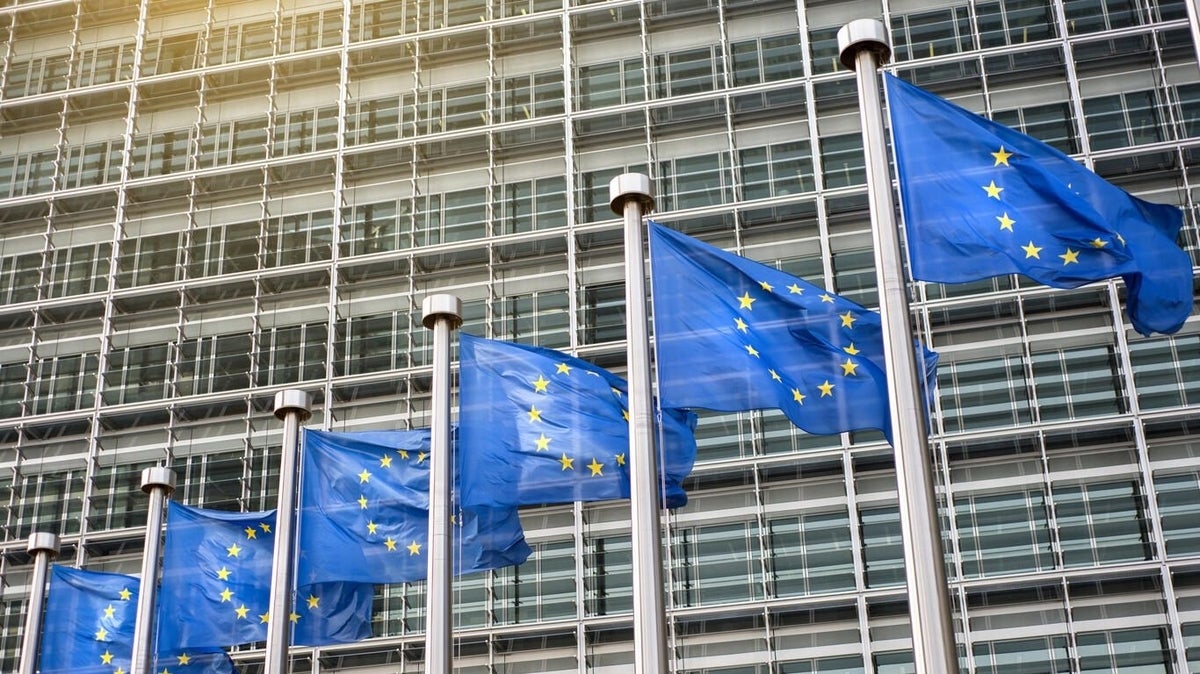Ad
 Image: iStock/artjazz
Image: iStock/artjazz
The European Union has fined Apple and Meta a combined $800 million for violating its antitrust laws. The bloc took issue with Apple’s restrictions on app developers informing users about offers outside the App Store and Meta’s advertising model, which compels users to pay to prevent their data from being sold to advertisers.
Both companies were formally charged last summer for these violations of the Digital Markets Act, and the fines are the first under the 2022 legislation. The act aims to promote fairness and competition among digital products and services by enforcing rules on certain influential tech firms, called “gatekeepers.”
Apple and Meta now have 60 days to comply or could face additional penalties. Fines for DMA breaches can be up to 10% of a company’s total worldwide turnover, or 20% for repeated offences, but those handed to Apple and Meta are nowhere near this.
Why Apple and Meta have been fined
Apple has been fined €500 million, or approximately $570 million, for breaching DMA rules that require developers to easily and freely steer their customers toward purchasing options outside of the App Store, which may be cheaper or otherwise more advantageous.
SEE: Apple’s Geo-Blocking Practices Could Violate EU Rules
Since being charged, “the company has failed to demonstrate that these restrictions are objectively necessary and proportionate,” the European Commission stated. The Commission also demands that Apple “remove the technical and commercial restrictions on steering” and not apply workarounds “with an equivalent object or effect.”
Meta has been fined €200 million, the equivalent of $230 million, for its “pay or consent” advertising model. In this model, only users with paid subscriptions to Instagram or Facebook can opt out of targeted ads. Those who pay up get an ad-free experience, but those who don’t must consent to personalised ads. The Commission argues that these non-paying users should also “have access to a less personalised but equivalent alternative.”
SEE: Meta to Take EU Regulation Concerns Directly to Trump, Says Global Affairs Chief
“Meta’s model also did not allow users to exercise their right to freely consent to the combination of their personal data,” the Commission added. It acknowledged that, in November 2024, Meta introduced free, less-personalised options for European users. However, it says that this fine reflects the period between then and March 2024, when the DMA became legally binding.
Apple and Meta are appealing the fines
Both companies are appealing the fines. In a statement, Apple says that it has made “dozens” of changes to appease the EU, but it “move(s) the goal posts” for compliance. Indeed, since early 2024, Apple has allowed EU users to delete pre-installed apps, made changes to the App Store, and rolled out DMA-compliant Apple Intelligence.
Cupertino also accuses the region of “unfairly targeting” it with “decisions that are bad for the privacy and security of our users, bad for products, and force us to give away our technology for free.”
Meta’s Chief Global Affairs Officer Joel Kaplan issued a statement just hours after announcing its fine, adopting a more nationalistic tone. The Republican strategist said the penalties were an attempt to “handicap successful American businesses while allowing Chinese and European companies to operate under different standards.”
“This isn’t just about a fine; the Commission forcing us to change our business model effectively imposes a multi-billion-dollar tariff on Meta while requiring us to offer an inferior service,” he went on, “And by unfairly restricting personalized advertising the European Commission is also hurting European businesses and economies.”
Must-read Apple coverage
EU denies any political influence over its decision
The Commission delayed the fines announcement because it didn’t want it to clash with and potentially influence trade negotiations with U.S. President Donald Trump, according to the Wall Street Journal. A Commission spokesperson denied this, telling the publication that tech enforcement and trade are handled separately and the decisions were adopted only when ready.
Trump has previously criticised the EU for its regulatory stance against Apple, Google, Meta, and other US tech firms. At the World Economic Forum in January, he said, “they’re American companies, and they shouldn’t be doing that,” and that “it’s a form of taxation,” while Vice President JD Vance disparaged Europe’s use of “excessive regulation” at the Paris AI Summit in February. The president is also no stranger to threatening the bloc with tariffs when unimpressed with its regulations.
Commission also decides on two separate Apple probes, and says Facebook Marketplace no longer needs to comply with DMA
The fines weren’t the only tech giant-related announcement made by the European Commission on Wednesday.
The Commission formally informed Apple that it violates the DMA by disincentivising iOS app developers from listing their apps on third-party app stores or through a website. If they want to distribute on a platform other than the App Store, they must opt for business terms that include the potentially expensive Core Technology Fee and meet other strict eligibility requirements.
Apple also makes it difficult for end users to install apps on their devices using platforms other than the App Store. The Commission stated that the company has not yet demonstrated that these restrictions are necessary and proportionate, but now can respond before charges or fines are imposed.
A separate probe, in which the Commission investigated the extent to which users are prevented from choosing third-party browsers and other apps on Apple devices, has been closed without penalties. This follows Apple’s announcement of several changes in August, including adding a browser choice screen and the ability to uninstall default apps.
Finally, the Commission has decided to exempt Facebook Marketplace from the list of platform services subject to the DMA. It had fewer than 10,000 business users in 2024, below the threshold required for compliance. Only certain core platform services provided by the gatekeeper organisations must abide by the legislation.
Ad

